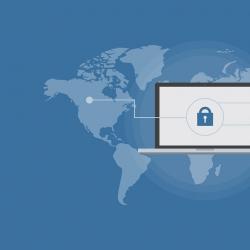How to Secure Your Cloud Storage: Best Practices
Cloud storage has become an integral part of both personal and business data management, offering a convenient and scalable solution for storing vast amounts of information. However, with these perks come concerns regarding data security and privacy. Ensuring that your cloud storage remains secure is of paramount importance in safeguarding sensitive information against potential breaches. Here are some best practices to secure your cloud storage effectively.
1. Choose a Reputable Cloud Service Provider
The first step in securing your cloud storage is selecting a trustworthy cloud service provider. Look for providers with solid reputations, robust security measures, and a history of transparency. Review their security policies, including data encryption, compliance certifications (like ISO 27001 or GDPR), and post-breach response strategies. Popular providers such as AWS, Google Cloud, and Microsoft Azure often have comprehensive security resources.
2. Use Strong, Unique Passwords
Your passwords are the first line of defense against unauthorized access. Opt for strong, unique passwords that include a mix of letters, numbers, and special characters. Avoid using easily guessed passwords such as "password123" or anything too personal. Consider using a reputable password manager to generate and store complex passwords securely.
3. Enable Two-Factor Authentication (2FA)
Two-factor authentication adds an extra layer of protection by requiring a second form of verification beyond your password. This could be a code sent to your mobile device, a fingerprint scan, or an authentication app. Enabling 2FA significantly reduces the risk of unauthorized access, even if your password is compromised.
4. Encrypt Your Data
While most cloud providers offer some level of encryption, it’s wise to encrypt sensitive data before uploading it to the cloud. By encrypting data on your end, you control the encryption keys, ensuring that only authorized parties can decrypt and access your information. Look for tools and applications that offer end-to-end encryption for added security.
5. Regularly Review Account Activity
Frequently monitor your cloud account for any suspicious activity or unauthorized access attempts. Many cloud services offer activity logs that track login attempts and file access. Regularly reviewing these logs helps you detect potential security threats early and take swift action to mitigate any risks.
6. Implement Access Controls
Ensure that only authorized individuals have access to your cloud storage. Use role-based access controls to limit data access based on job roles and responsibilities. Assign permissions thoughtfully and review access rights regularly, especially when employees change roles or leave the organization.
7. Maintain Up-to-date Software
Ensure that your applications, devices, and security software are up-to-date with the latest patches and updates. Cloud providers regularly release updates to address vulnerabilities and enhance security features, so failing to keep your systems current can expose your data to unnecessary risks.
8. Educate and Train Your Team
For businesses, human error is one of the most common causes of data breaches. Educate your team about common security threats such as phishing, social engineering, and insecure password practices. Regular training sessions can help reinforce the importance of cybersecurity and ensure everyone is informed about the latest security protocols.
9. Back-Up Your Data
Even with robust security measures, it’s essential to have regular data backups. Back up critical data both locally and in the cloud to prevent loss from accidental deletion, ransomware attacks, or hardware failures. Make sure your backup processes are automated and test your backups regularly to ensure data integrity and fast recovery if needed.
10. Keep Abreast of New Threats
The landscape of cybersecurity is continuously evolving, and new threats emerge regularly. Stay informed about the latest security trends and threat intelligence to better prepare and adapt your security strategies accordingly. Joining cybersecurity forums and subscribing to security alert services can be beneficial.
By implementing these best practices, individuals and businesses can significantly enhance the security of their cloud storage. While no system can be entirely immune to threats, being proactive and vigilant can help mitigate risks, protect sensitive data, and provide peace of mind in an increasingly digital world.






















